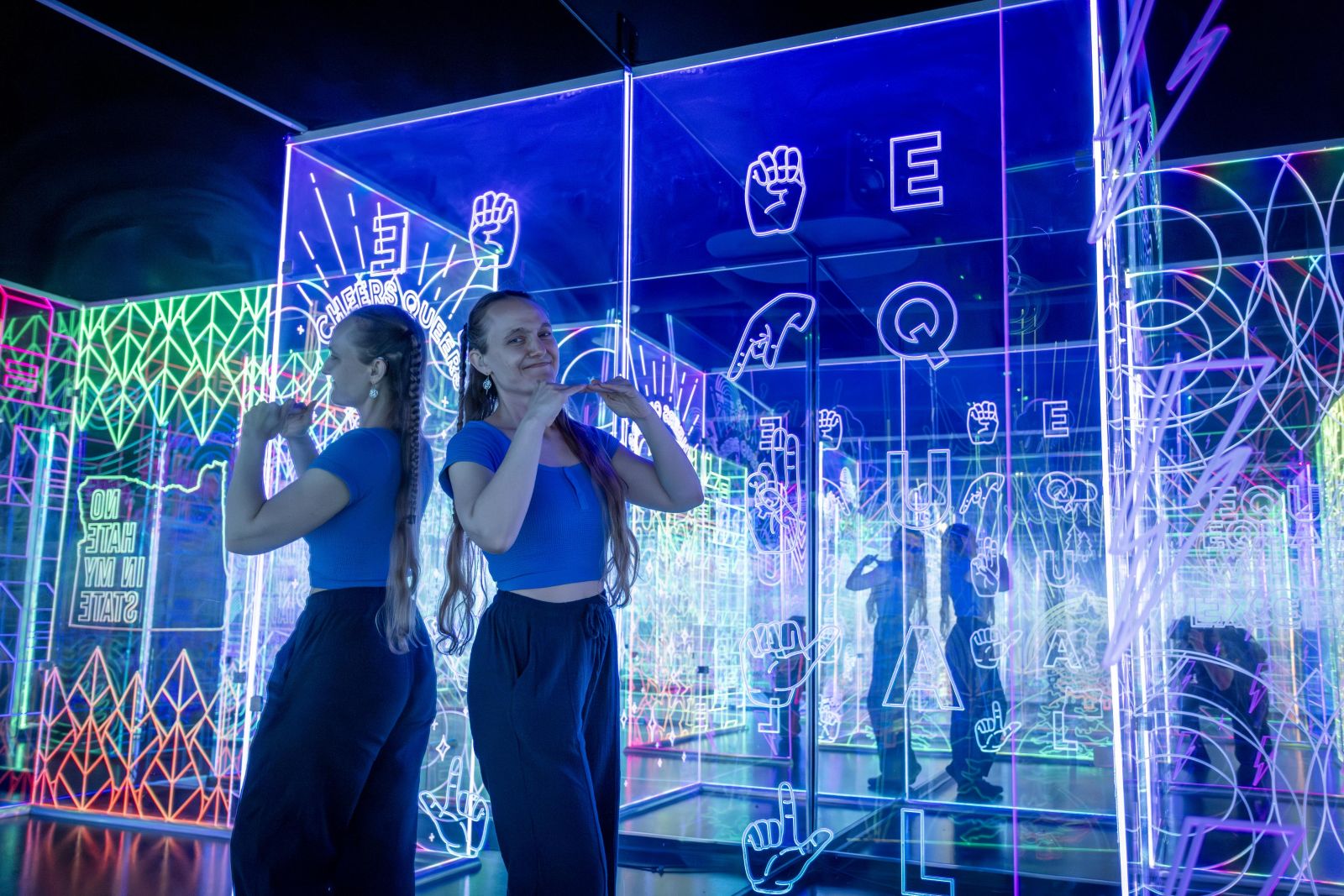Wheel the World, a travel platform for people with disabilities, recently designated Oregon as the first "accessibility verified” state. The recognition is the culmination of a two-year push by Travel Oregon to build off its existing principles of being a welcoming destination.
As with so many ideas, the initial spark is the result of a fateful meeting during a conference.
Greater Miami and Miami Beach area had just been certified by Wheel the World as an "Accessible Destination" when Kevin Wright, vice president of global marketing at Travel Oregon, and Arturo Gaona, Wheel the World’s vice president of sales, discussed the dramatic efforts made by local organizations on Oregon’s coast to attract travelers in need of extra assistance.
Together, they created a roadmap for collaboration between the statewide DMO, online platform, and hundreds of local businesses and community leaders to become the gold standard for accessibility.
All told, more than 750 hotels, restaurants and tourism businesses in 43 communities across the state were part of the endeavor. Travel Oregon distributed nearly $9 million in grants, including $6.2 million to 65 projects in the past year, to ensure 20% of the state’s offerings met Wheel the World’s standards.
“This is the largest endeavor that a destination has ever done for accessibility in the world,” said Gaona.
 Hopscotch immersive experience in Portland.
Hopscotch immersive experience in Portland.
Doing the Right Thing
Making as many tourist attractions, local retailers, and experiences available to individuals regardless of ability is not just the right thing to do from a moral standpoint, but is also a smart business decision, said Wright.
About 1 in 6 individuals worldwide report they have a disability. “The accessibility travel market is a $120 billion industry,” Wright said. “But it has the potential to be a $300 billion industry. There's a lot of room to grow as destinations identify this opportunity.”
According to Wright, 17% of visitors to Oregon indicate that they have a disability, a number that could significantly increase as word of the recognition spreads.
As a marketer, Wright can’t deny the benefits that could come from this process. As an example of just how important accessibility is to Travel Oregon’s strategy, Wheel the World and the DMO teamed up on a 150-day production shoot across the state to capture marketing materials.
To that point, Expedia Group research shows members of often overlooked travel segments respond favorably to brands and organizations speaking to their needs.
- 73% of underserved travelers are more likely to book again with brands that promote inclusive practices, compared to 62% of the general population.
- 76% of underserved travelers believe it is important to see themselves reflected in travel ads and promotions, compared to 69% of the general population.
The long content development pushed Wright’s initial hopes of tying the recognition to Americans with Disabilities Month to this fall.
The timing worked out that news broke just before October’s Travel Ability Summit, a conference for 200 accessibility innovators, tourism leaders, and destination professionals, occurred at the Sunriver Resort in Central Oregon.
The extra time and effort, which included bringing in influencers to test out experiences around Oregon, should pay off. Expedia reports that 83% of underserved travelers say it is important to get reviews and recommendations from people who share their identity and 71% say it is important that travel advertising and promotions reflect their accommodation needs.
Gaona said the travel industry lags behind in serving individuals with disabilities. “The industry has not been actively taking care of them,” he said. “Eighty percent of them are having bad experiences.”
Small Steps Can Make a Big Difference
The standard for accessibility is the American with Disabilities Act. Gaona applauds the measure as a good baseline, but designating businesses and facilities as either compliant or non-compliant can be limiting.
Wheel the World takes assessments and offers travelers the opportunity to make educated opinions about lodging, travel, and other travel experiences.
Wright adds organizations can become prone to inaction if they are overcome by the vastness of the topic. He suggests an approach environmentalists often take with sustainability: Do what you can now and build off the effort.
For instance, Travel Oregon took baby steps by implementing hearing loop technology at visitors centers, which only cost a few thousand dollars.
The accessibility has snowballed into an “arms race” among certain Oregon destinations, Wright reported, with some cities competing to have the largest Mobi mat.
Oregon is an interesting test for accessibility. Portland, Eugene, and Bend are well-known destinations, but much of the state is rural. As such, there is a heavy emphasis on the outdoors. And while that could be a hindrance to creating opportunities for individuals in wheelchairs, it has not.
Sample projects benefiting from grants include:
- Antelope (population 37) is now on track to open an accessible bike camp with lodging, a guest pavilion and stargazing experiences for cyclists traveling the Oregon Outback Trail and Pan-American Highway. The goal is for the site to become Dark Sky International’s first certified lodging destination in Oregon
- Joseph Branch Trail Consortium received $120,000 to construct a 1.08-mile accessible and ADA-compliant trail segment that will provide a safe, off-street way for visitors to cross from Wallowa into the 320-acre Nez Perce Wallowa Homeland, featuring landscaping, interpretive signage, benches, and other amenities.
- Lan Su Chinese Garden in Portland is using $100,000 for a multilingual accessibility and cultural inclusion project addressing barriers to providing an inclusive experience for visitors from the Spanish-speaking, AANHPI, and international communities.
Michigan, Nevada, and New York are among other destinations making notable strides in accessibility, according to Gaona. He said the key is the will to want to make a difference.
“When somebody wants to really do something, they want to make it happen,” said Gaona. “You can sense that right away.”
Photo Credit: Travel Oregon
